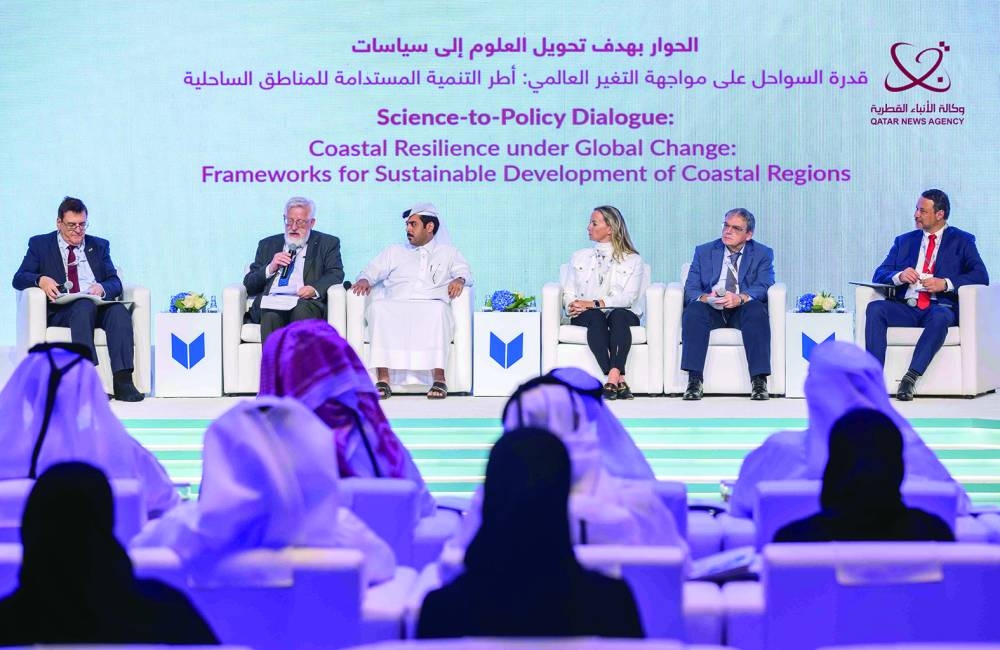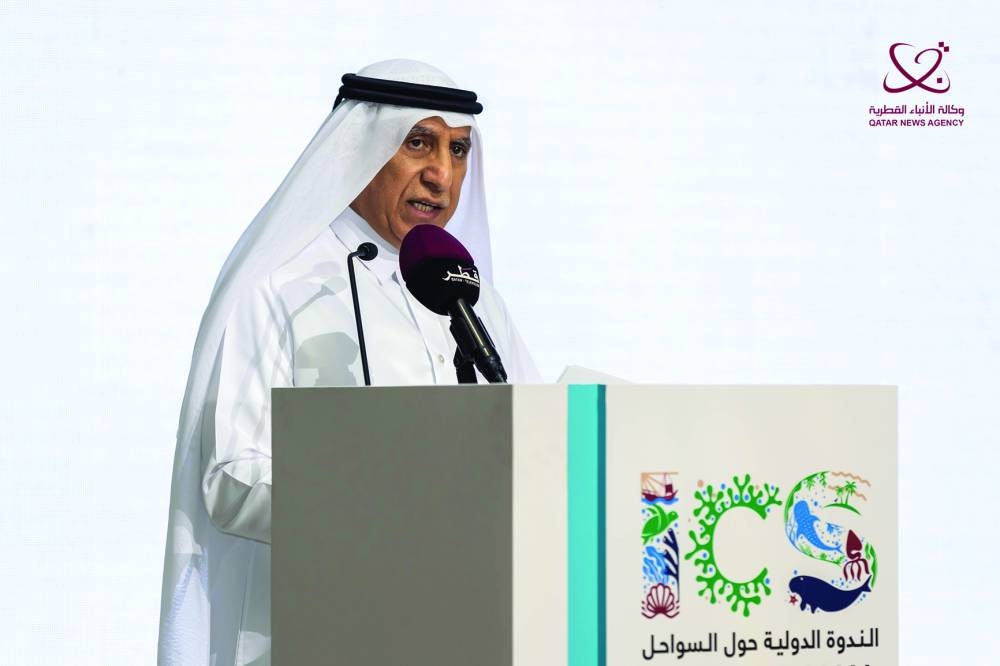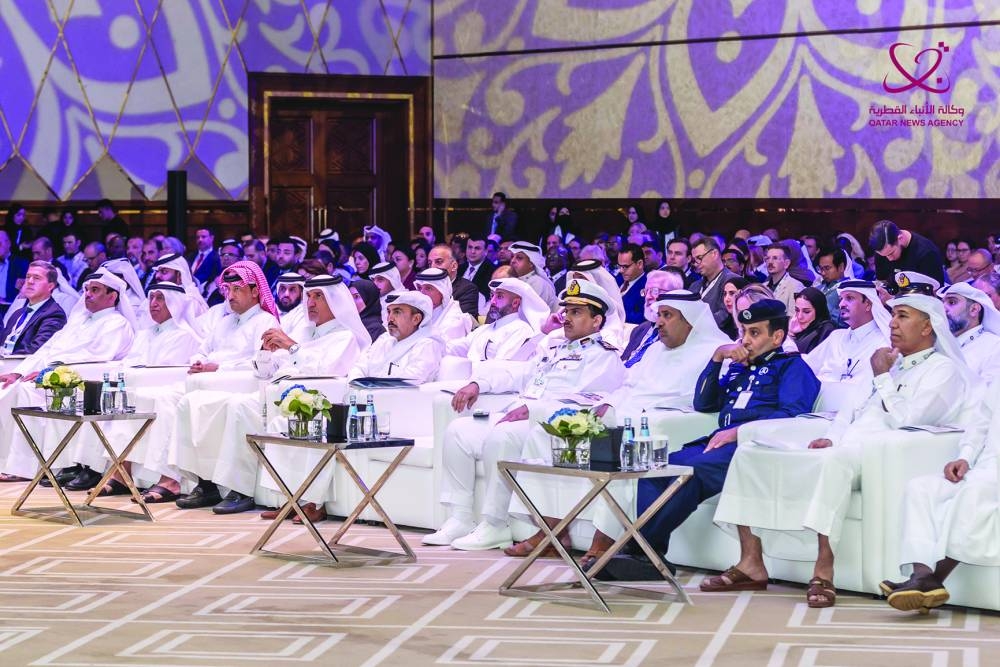The 17th International Coastal Symposium (ICS 2024) is being hosted by the University of Doha for Science and Technology (UDST) from Sept 24-27 under the theme "Coastlines under Global Change."
ICS 2024 brings together top coastal scientists, engineers, researchers, and policymakers from across the globe. The symposium will serve as a platform for exchanging groundbreaking research and innovative solutions to the critical challenges facing coastal areas worldwide, including sea-level rise, coastal erosion, and climate change. The keynote speakers for the event bring a wealth of expertise in marine science, coastal engineering, and environmental protection.
ICS 2024 will focus on key topics such as coastal management, policy and planning, marine and coastal engineering, the impacts of climate change on coastal ecosystems, sustainable tourism in coastal areas, decarbonisation of the marine industry, and coastal evolution and shoreline change. These discussions aim to inspire new ideas and solutions for the sustainable development and protection of coastal environments.
In his speech during the inaugural session, President of UDST Dr Salem bin Nasser Al-Nuaemi said: "Coastal life is deeply woven into our Qatari history, culture, and environment. Recognising the vital role that coastal areas play in supporting the nations economy through their rich diversity, it is fitting that we dedicate this symposium to our homeland, often referred to as the Pearl of the Arabian Peninsula. This gathering brings together esteemed local and international experts and researchers in an active academic setting. In alignment with Qatar National Vision 2030 and the Integrated Coastal Zone Management Plan. Discussions will focus on key issues that highlight the essential contributions of coastal environments to our economic and social systems while exploring the solutions, technologies necessary to ensure their sustainability. We hope this symposium fosters valuable exchanges, dialogue and collaboration aimed at protecting and sustaining the rich diversity of our coasts. We also encourage you to explore Qatar's coastline, which spans over 560 kilometres and represents a cherished heritage we are committed to preserving."
President and Senior Adviser International Coastal Symposium (ICS) Dr Chris Makowski said: "The ICS has matured over the past years and now attracts researchers from all different regions of the world in a wide variety of fields. We are all gathered here at the ICS2024 in Doha, Qatar, to collectively share in the latest coastal studies being conducted today. This is a historic meeting, as it will be the first one to officially take place in the Middle East, and we hope this will be a trend in the future. We wish to thank UDST for their organisation and we encourage participants to not only take advantage of the wonderful talks and posters being presented at the ICS 2024, but to also explore the unique opportunities this beautiful coastal city has to offer."
Dr Abdulrahman Hassan Abo Nanda, Senior Research Programme Specialist, Office of Scientific Research Programmes at the Qatar Research, Development and Innovation Council (QRDI), one of the sponsors of the symposium, also spoke at the inaugural session about the symposium's importance and the topics that will be addressed.
A documentary was also screened on the strategic importance of Qatar's beaches and coastal environment, shaping the future in terms of coastal sciences and related challenges, maritime trade and coastal ecosystems as a treasure trove of biodiversity, herbs and coral reefs as habitats for many aquatic organisms and other areas and mangrove trees that are considered havens for birds in the country, which in general opens the door wide to conduct related research.
The proceedings from ICS 2024 will be published in the Journal of Coastal Research (JCR), ensuring international visibility for the high-quality research presented. Additionally, awards for Best Paper and Best Student Paper will be offered, encouraging excellence and innovation among participants.
As a leading institution recognised for its commitment to applied learning and sustainability, UDST's hosting of ICS 2024 aligns perfectly with the symposium's objectives. This event also highlights the university's dedication to research that supports Qatar's National Vision 2030, with its focus on environmental sustainability, economic growth and social development.
In his remarks to Qatar News Agency (QNA), President of UDST Dr Salem bin Nasser Al-Nuaemi emphasised the importance of the 17th International Coastal Symposium in light of the global changes, especially in terms of the changes that have occurred on the coasts and their infrastructure as a result of climate change and its negative effects on them and on the seas and oceans, and their uses in various economic, social and security sectors, and others such as water desalination, oil, and gas projects.
He said that the symposium will discuss in detail the problems and challenges related to all these phenomena and how to benefit from the results with the participation of expertise and scientists from North America, Europe, and Australia, as well as how to conduct joint research and work to localise it and to benefit from it with the participation of scientists from Qatar and UDST in a manner consistent with issues related to the marine environment.
In a related context, Dr Al-Nuaimi pointed out that UDST has a specialisation in the field of marine engineering, whose objectives and programmes are in line with the themes of this symposium, which he considered an opportunity for academics and university students to have a role and to conduct joint research at the local level that keeps pace with some phenomena related to the symposium topic and some of the economic, social, and technical needs of the Qatari coasts.
He indicated that the symposium will produce important outcomes, including some advice, policies and guidelines for decision-makers and governments, and how to use technology to clean oceans and coasts, track marine life, and predict natural phenomena.
The first day of the symposium included a session titled 'Science to Policy Dialogue: Coastal Resilience Under Global Change: Frameworks for Sustainable Development of Coastal Regions." In this context, the discussion focused on protecting the natural environment in Qatar, efforts to ensure sustainability and development, and effective laws and legislation that protect Qatar's environment, with the presence of an integrated laboratory run by the Ministry of Environment and Climate Change (MoECC) to protect the country's marine and coastal environment. Another session addressed the efforts of the MoECC to preserve and manage marine natural resources, in addition to organising an exhibition of research posters.



